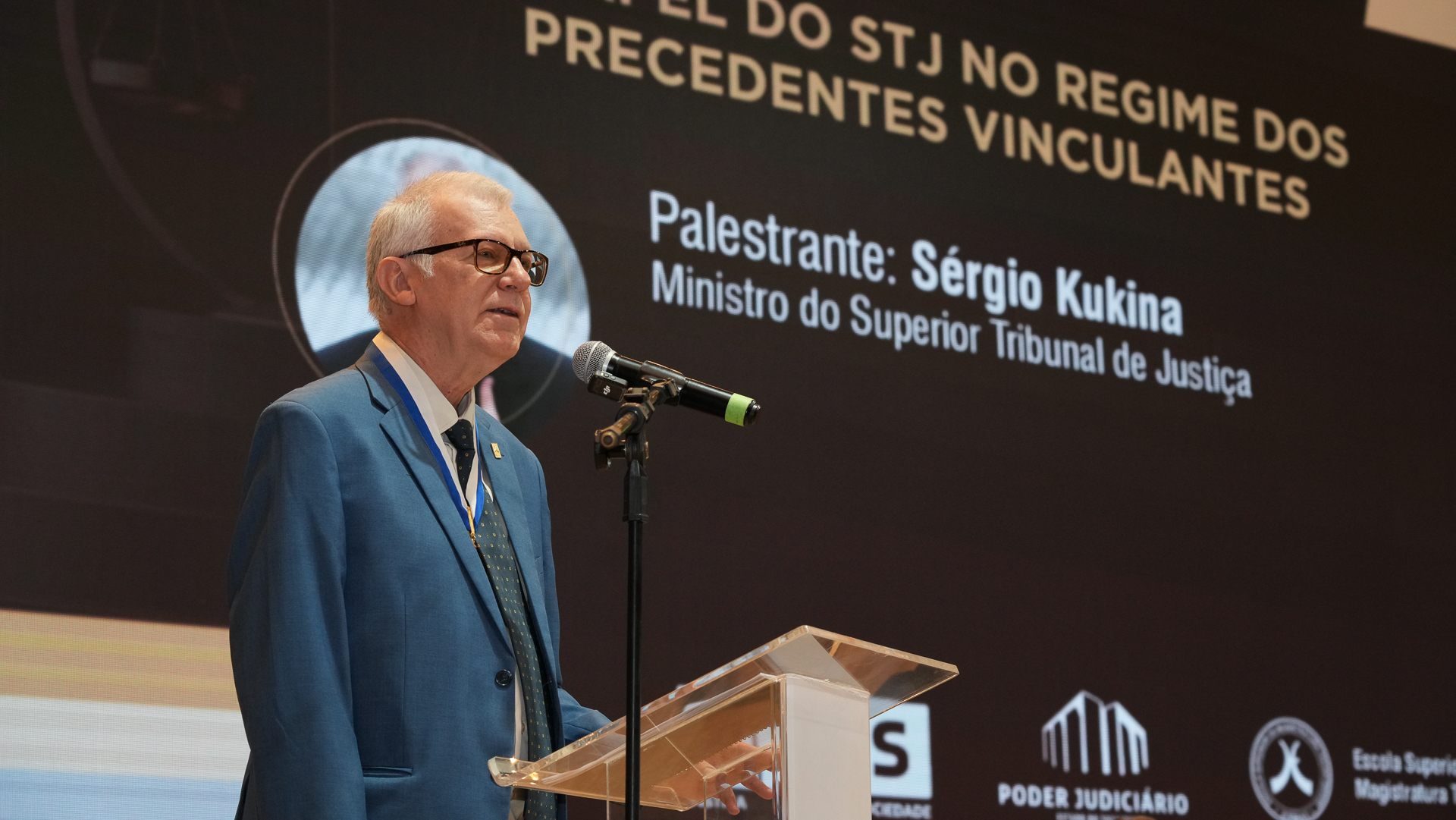
Opening the magna speech at the 1st State Meeting on Precedents and Collective Actions of the Judiciary of the state of Tocantins, Minister Sérgio Luiz Kukina, of the Superior Court of Justice (STJ), got straight to the point:
“The idea of binding precedents involves isonomic treatment for jurisdictions and a minimum of predictability, which dialogues with legal certainty.”
This set the tone for his lecture on “The role of the Superior Court of Justice (STJ) in the system of binding precedents”, which took place on Friday morning (June 27th) in the auditorium of the Court of Justice of the State of Tocantins (TJTO).
Using accessible language, the minister stressed that repeated decisions by the superior courts should serve as a guide for the other instances, ensuring that similar cases have similar outcomes. “What we're trying to do is combat the ‘legal lottery’, in which identical claims receive opposite decisions just because they fall in different courts,” he explained, pointing out that this unpredictability undermines the credibility of the Judiciary.
Stability and efficiency
Kukina stressed that the role of the STJ in the system of binding precedents is directly related to constitutional principles and, when talking about the independence of judges, he was blunt:
“The magistrate has functional independence, yes. But he/she cannot be a producer of instability. The judge may even disagree with a decision by the STJ, but he/she must apply it while respecting the model of the system”.

For the minister, the correct use of qualified precedents is also a policy for rationalizing justice. He explained that decisions with general repercussions or in a repetitive regime should ideally discourage the filing of new lawsuits on the same subject. "What is expected is that the lawyer has the responsibility to say to the client: 'This thesis has already been rejected. This claim should not even be brought'".
Despite the strength of precedents, Kukina emphasized that case law is not fixed. "It can and should be revised when there are relevant social or legal changes. The Code of Civil Procedure itself, in the article 927, provides for this."
Kukina also referred to the Sustainable Development Goals (SDGs) of the 2030 Agenda, highlighting the role of the Judiciary in promoting SDG 16, which deals with peace, justice and effective institutions.
A new culture for the judiciary
With 36 years of existence, the STJ, according to the minister, has consolidated an essential role in stabilizing interpretations of federal law, sharing this role with the Federal Supreme Court (STF). Both, he said, act as legal compasses, which must be followed to ensure legal certainty in the country.
Coordinated by Justice Marco Villas Boas, general director of the Superior School of the Judges of the State of Tocantins (Esmat), and Justice Pedro Nelson de Miranda Coutinho, chief of justice of the state of Tocantins, the panel that gave the lecture stressed the importance of the event to strengthen the culture of precedents in the State.
The meeting continues until the end of the day as a space for exchange, learning and reinforcement of the institutional commitment to a more predictable, equal and efficient Justice.





